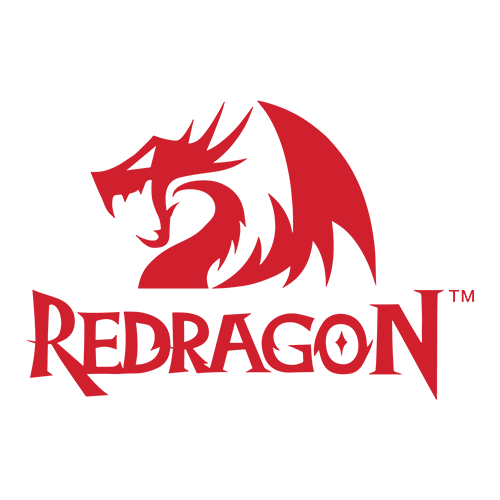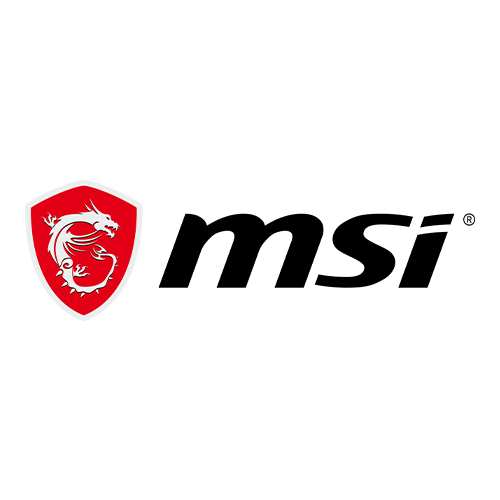
8 Hot Job Skills Fostered by Gaming
natasha@syntech.co.za2020-10-13T10:25:37+02:008 Hot Job Skills Fostered by Gaming
Employers want them. Gamers have them.
When it comes to your favourite RPG, MOBA, or FPS game, everyone knows that the more you play, the better you get. But what if your mad skills in League of Legends or Escape from Tarkov benefitted you outside the battlefield? What if they helped you improve the in-demand soft skills employers are looking for in 2020?
It’s a legitimate argument, despite what your parents might have said when you were in middle school about video games being a waste of time. Researchers worldwide have analyzed various gameplay experiences and found links to marketable skills to add to your resumé. To break it down, here’s a list of 8 hot job skills, and how gamers can exchange them for bigger paychecks.
-
Cognitive flexibility
Cognitive flexibility is the ability to adapt behaviours in response to diverse concepts or unexpected changes. Also related to critical thinking, cognitive flexibility is highly desirable in employees because it means they are better at adapting to setbacks and at getting along with various personalities.
Studies have found that gaming focused on rapidly switching between multiple information and action sources can lead to a substantial increase in cognitive flexibility. These results suggest that playing video games actually trains the brain connections supporting cognitive flexibility.
That comes as no surprise to Patrick Soulliere, global gaming marketing manager for Crucial. “The MOBA genre does an incredible job of teaching people to adapt to the unexpected as part of strategy,” he said. “Every game is different. You need to constantly work with what’s happening on the map, and there are 10 different players doing things you can’t control. You need to account for everything while also deciding what you want to do. Sometimes you have to make those decisions in milliseconds.”
-
Creativity
Creativity is the perfect counterpart to cognitive flexibility in the workplace, and just as desirable from a hiring perspective. Creative workers bring fresh perspectives to problem solving and interpersonal relationships, often finding unorthodox solutions, diffusing tensions, or instigating the kind of goofing off that improves productivity.
Once relegated to hobbyists or those within the arts, creativity has recently been recognized by researchers as vital to the fields of science, technology, engineering, and mathematics, which accounts for the shift from STEM to STEAM programs in secondary education. One study in which participants were instructed to create levels in Portal 2 suggests that game making not only encourages students in STEM fields but prepares them to succeed there as well.
Soulliere agreed that Portal 2 has the potential to train creativity. “You have to be creative to solve the game, to follow the thought process that will lead to success and anticipate what will happen several steps ahead,” he said. “That exemplifies creativity.”
-
Collaboration
The ability to play nice on a team has always been a hot job skill. (Isn’t that the real reason we had to do all those annoying group projects in school?) So, how’s this for a group project: playing video games with your coworkers! One study conducted at Brigham Young University recently concluded that playing video games as a team can be an optimal tool for encouraging collaboration.
Ryan Jacobson, worldwide product marketing manager for Crucial, has seen the benefit of battle royale games like PubG or Fortnite to teach collaboration both during his time in the military and on the job at Crucial. “It’s huge in a battle royale environment because you’re dropping into a map and the goal is to stay alive, but you’re doing it with people you don’t know, who you’ve never played with before,” Jacobson said. “I play Apex Legends, which is really good for honing that skill of learning to work with a variety of personalities. You have to work together to figure it out. To survive.”
-
Emotional intelligence
Sometimes called emotional quotient, or EQ, emotional intelligence is now more highly sought in the workplace than IQ, and is generally defined as the ability to empathize with others, maintain healthy social skills, and to be self-aware, self-motivated, and self-regulated. One study of Italian high school students suggests that video game play can improve our expression and regulation of emotions. Some industry experts even see a trend in gaming toward developing a player’s sympathy and empathy or inspiring their sense of altruism.
Soulliere said that the very nature of gaming lends itself to emotional intelligence because gamers must be aware of their strengths and weakness. “They have to be motivated to improve, despite frequent failure, and regulate their responses to other players,” he said.
-
Leadership
Following directions has always been important in the workplace, but getting others to follow you along the right path? That’s gold to your boss. In a study commissioned by IBM entitled Virtual Worlds, Real Leaders, researchers concluded that the kind of leadership skills practised in MMORPGs like World of Warcraft and Final Fantasy are virtually the same as those needed to run a modern company.
Soulliere saw this firsthand when he managed a professional esports team before joining Crucial, explaining how his team was ranked 13th in North America until they scrimmed with the best shot-caller in the country. “We immediately shot up to the third-best team in America based on his leadership. Those are the same skills you can bring into the workplace. There’s almost no gap.”
Jacobson agreed, citing similarities to his military career. “In the military, I learned that some people want to be told what to do, some need to see it as their idea, and others you almost have to lead by the hand,” he said. “You have to figure people out really quick. It’s the same in-game. Players come in with a variety of personalities. You have to learn to lead by working with them.”
-
Communication
In a recent survey, 52% of employees said they witnessed poor financial outcomes due to a lack of communication within their organizations. It’s no wonder that good communication is at the heart of each of these desirable job skills.
Research conducted at the University of Glasgow in Scotland found that gaming is a perfect place to hone communication. In a study of young adult gamers, researchers found that in-game conversations not only improved their communication skills, but also their resourcefulness and ability to adapt to new situations.
Soulliere said when he first began managing a Heroes of the Storm pro team, they worked on nothing but communication for two weeks, focusing on telling each other what they were doing and where they needed help. “We didn’t work on any other skills,” Soulliere said. “Just communicate, communicate, communicate. We started out eighth in North America and became second best in the world within two weeks. And those are skills those guys will take into their jobs.”
-
Resilience
Failure is a part of every success story, but only to those who are willing to bounce back from a failure and try again. But can gaming improve that skill? According to Jacobson and Soulliere: Absolutely.
“A win rate in Apex Legends is something like 6%,” Jacobson said. “The ultimate challenge of the game is to win. But there’s a lot of failure there too. At the same time, you’re getting better and better. That’s kind of the point.”
Soulliere agreed. “Gamers are good at self-reflection,” he said. “They are likely to look at their flaws and improve upon them. When they make a mistake, they’ll look at that and say, ‘Here’s what I need to do to fix that going forward.’ They’re not as frustrated by failure.”
Several studies have found a link between gameplay and resilience, focusing on everything from fighting depression to maintaining a resilient attitude during chemotherapy. Ultimately, research suggests that video gameplay enhances the functional connectivity that promotes resilience, which actually increases the volume of gray matter in our brains. Whoa!
-
Service orientation
Have you ever heard someone say, “that’s not part of my job description”? (Yeah. No one likes that guy.) Instead, you like working with people who have a service-oriented attitude – an awareness of your company’s culture, shared goals with your team, and the willingness to take on various roles when needed.
Like many skills on this list, service orientation is not focused on just one thing, but on many. Gaming can teach that skill, whether it’s the patience, perseverance and friendly attitude toward others you adopt in Stardew Valley, or the willingness to step back and let another player lead in League of Legends.
“Gaming teaches you to work outside your normal comfort zone,” Soulliere said. “A lot of gamers want to play only one character in League of Legends, and that’s a top-lane role. But if the guy ahead of you picked that role, most players will say, ‘Okay, I need to play mid-lane now, or I need to jungle for my team.’ That carries over to their attitudes in the workplace.”
Jacobson agrees. “It’s amazing how much that plays into it,” he said. “Everyone has the ultimate goal to win the game. But if a player goes down, the ring is closing and they have a player dying, just about everyone will go back in and get their player out. They don’t have to. They could keep going and try to win the game without them, but most people will make a sacrifice to do what’s better for the entirety of the team.”
Conclusion
There are other soft skills gaming can teach. Everything from time and crisis management, to coping with stress and logistical planning have components that can be honed in-game. (And we haven’t even touched hard skills yet.)
So, the next time you log in to play World of Warcraft or Counter-Strike, consider how the skills you’re developing might benefit you at the office. And then, if you decide to count the next hour of battling the Horde as corporate development, who’s to argue?
The opinions expressed in these articles are those of the individual authors and not Micron Technology, Inc., its subsidiaries or affiliates. Upgrading your systems and components can cause damage to the system or components, including potential data loss. Micron is not responsible for any damage or harm, including data loss or system interruptions, that may occur. All information is provided “AS-IS” and neither Micron nor the author make any representations or warranties with respect to the information provided. Neither Crucial nor Micron Technology, Inc. is responsible for omissions or errors in typography or photography. Micron products are warranted as provided for in the products when sold, applicable data sheets or specifications. Information, products, and/or specifications are subject to change without notice. Micron, the Micron logo, Crucial, and the Crucial logo are trademarks or registered trademarks of Micron Technology, Inc. Any names or trademarks of third parties are owned by those parties and any references herein do not imply any endorsement, sponsorship or affiliation with these parties.
Original article published by Crucial available here.













